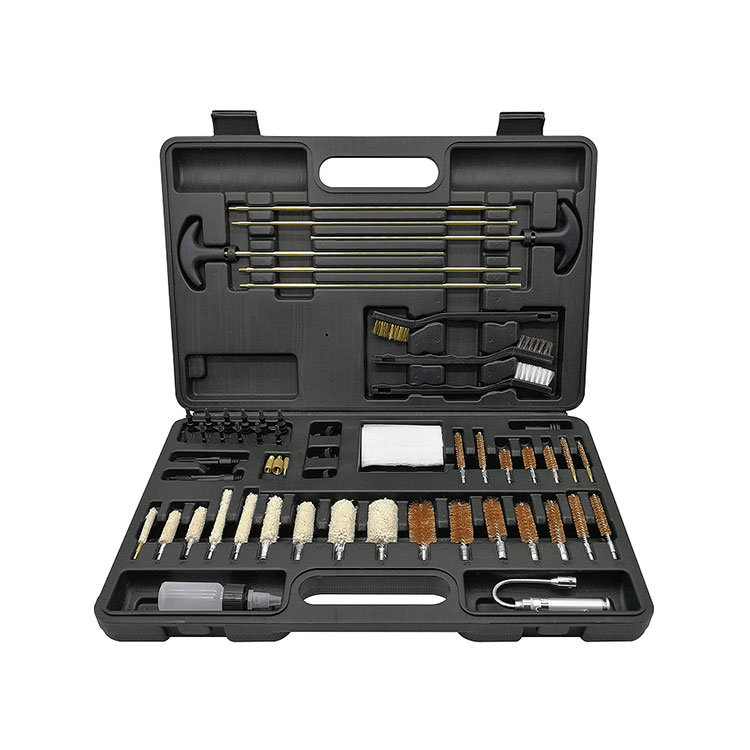
- English
- Español
- Português
- русский
- Français
- 日本語
- Deutsch
- tiếng Việt
- Italiano
- Nederlands
- ภาษาไทย
- Polski
- 한국어
- Svenska
- magyar
- Malay
- বাংলা ভাষার
- Dansk
- Suomi
- हिन्दी
- Pilipino
- Türkçe
- Gaeilge
- العربية
- Indonesia
- Norsk
- تمل
- český
- ελληνικά
- український
- Javanese
- فارسی
- தமிழ்
- తెలుగు
- नेपाली
- Burmese
- български
- ລາວ
- Latine
- Қазақша
- Euskal
- Azərbaycan
- Slovenský jazyk
- Македонски
- Lietuvos
- Eesti Keel
- Română
- Slovenski
- मराठी
- Srpski језик
Is it okay to clean a gun with soap and water?
Guns are precision machines, and cleaning and maintenance directly affect their performance and life. "Can you clean a gun with soap and water?" is a question that many users are concerned about. The answer needs to be comprehensively judged based on the type of gun, the material of the parts, and the usage scenario. Blind use may cause damage to the parts or functional failure.

Some parts can be cleaned for a short period of time
For the external metal parts of the gun (such as the outer wall of the barrel and the frame of the gun body), if there is no special cleaning agent, you can first use a soft cloth dipped in a diluted neutral soap solution (pH 7-8) to gently wipe to remove light stains such as surface oil and dust. The surfactant components of soap can decompose grease, and rinsing with clean water can temporarily keep the appearance clean. This method is only suitable for emergency treatment, and it is necessary to wipe it with a dry cloth immediately after cleaning and then apply special anti-rust oil for guns to prevent moisture residue from causing metal rust.
Wooden or polymer grips can also be cleaned with soap and water, focusing on removing sweat stains and dirt. Avoid using strong alkaline soaps (such as laundry soap) when cleaning to prevent wooden grips from fading and cracking, or polymer materials from aging and becoming brittle. After cleaning, it is also necessary to dry thoroughly. The wooden grip can be properly coated with special maintenance wax to maintain its gloss and toughness.
Core components are prohibited and may cause serious malfunctions
It is absolutely forbidden to clean the internal core components such as the barrel and bolt with soap and water. The rifling inside the barrel is precise. The soapy water solution may leave minerals, which will form crystals after drying, wear the rifling or cause the bullet to jam. If the spring, firing pin and other small parts of the bolt are not completely cleaned after contact with soapy water, they are very likely to rust and jam, affecting the firing accuracy and even causing the risk of accidental discharge.
In addition, the metal coating of the gun (such as chrome-plated and nickel-plated parts) may destroy the integrity of the coating and cause local corrosion if it is exposed to soapy water for a long time. For high-end equipment such as antique guns or precision sniper rifles, the chemical reaction of soap and water may damage the original coating, reducing the collection value or shooting performance.
Scientific cleaning alternatives and operating specifications
Professional gun cleaners (such as solvent-containing sprays and special gun oil) are more reliable options. They can not only effectively remove stubborn stains such as gunpowder residues and carbon deposits but also contain anti-rust ingredients that can form a protective film on the metal surface. The cleaning process should follow the four steps of "disassembly - cleaning - lubrication - assembly": first disassemble the gun according to the instructions, use a special brush dipped in detergent to clean the inner wall of the barrel and the bolt; then wipe the remaining stains with a lint-free cloth; finally, apply special lubricants to the moving parts (such as triggers and slides) to ensure smooth operation.
Cleaning in special scenarios requires special attention: used guns must first remove gunpowder residues (acidic substances) to prevent them from corroding metals; guns that have been stored for a long time must be thoroughly dried and sealed in moisture-proof boxes after cleaning; special guns for underwater operations must use special waterproof cleaners to prevent moisture from invading internal parts.
The core of gun cleaning is "targeted treatment": mild external stains can be treated with neutral soapy water for a short period of time, but core components must rely on professional products; after cleaning, be sure to do a good job of rust prevention and lubrication to ensure that every detail meets the precision requirements of mechanical operation. Only by following scientific cleaning standards can we ensure the performance of the gun, extend its service life, and avoid safety hazards caused by improper operation.




